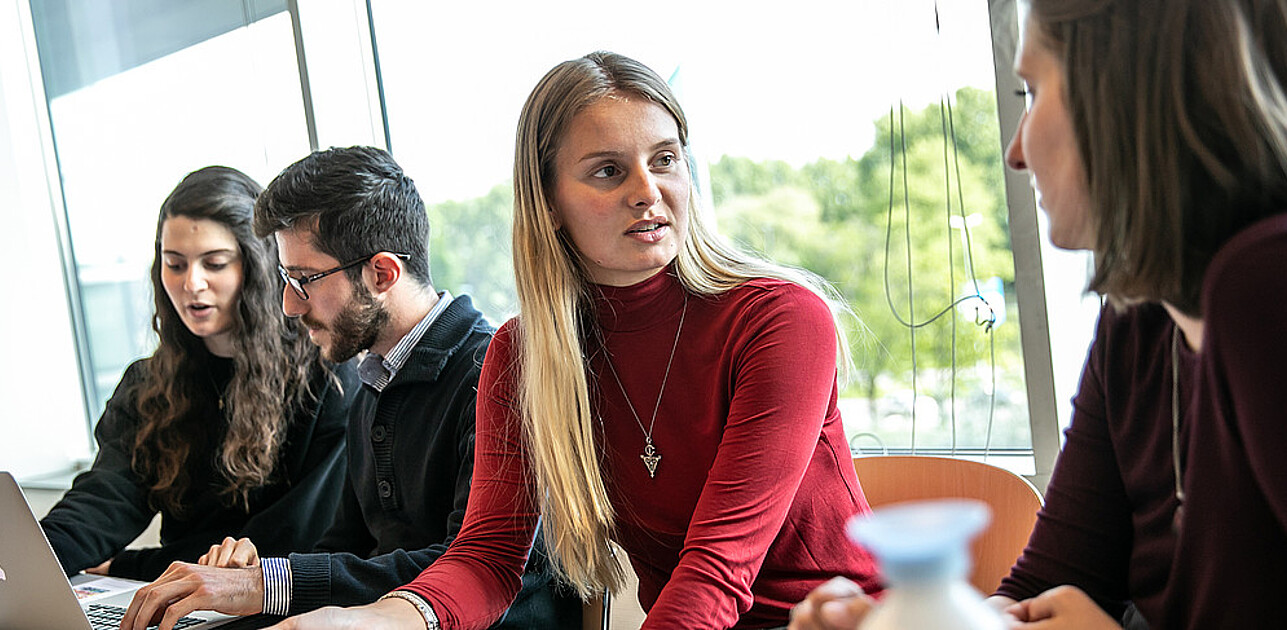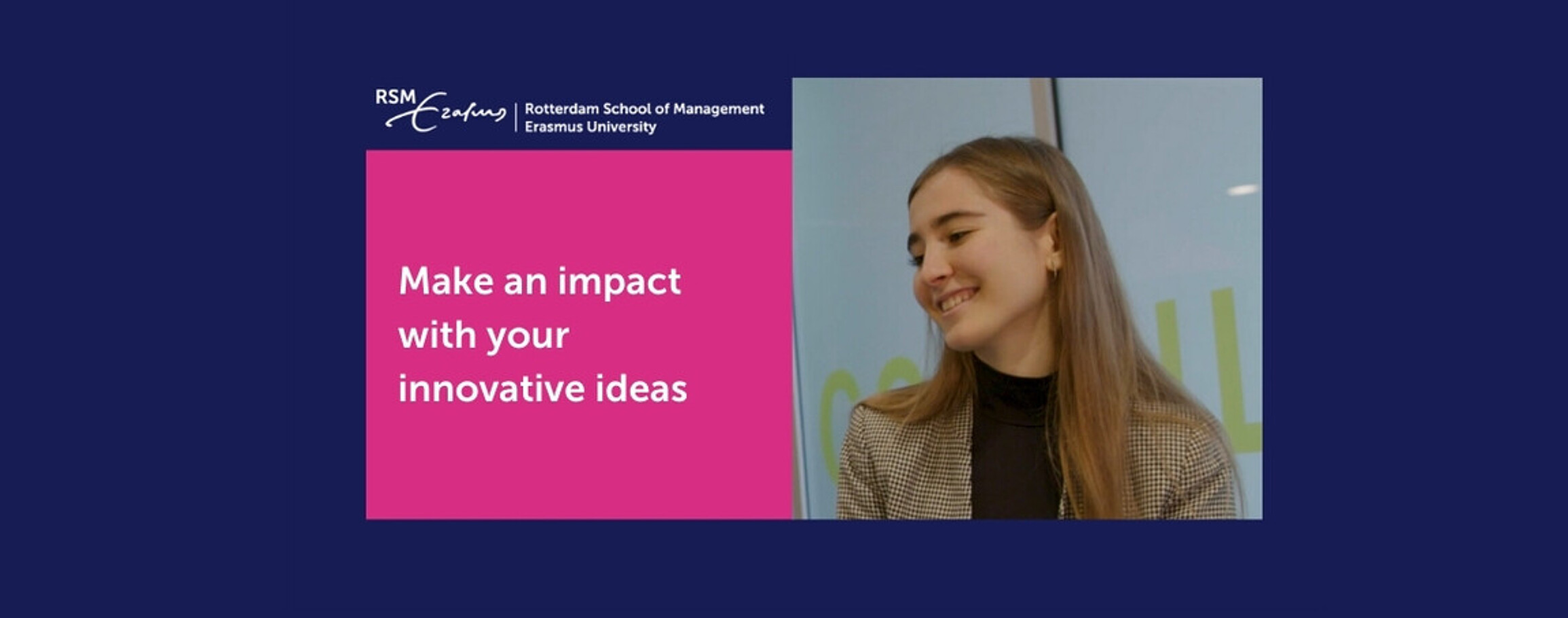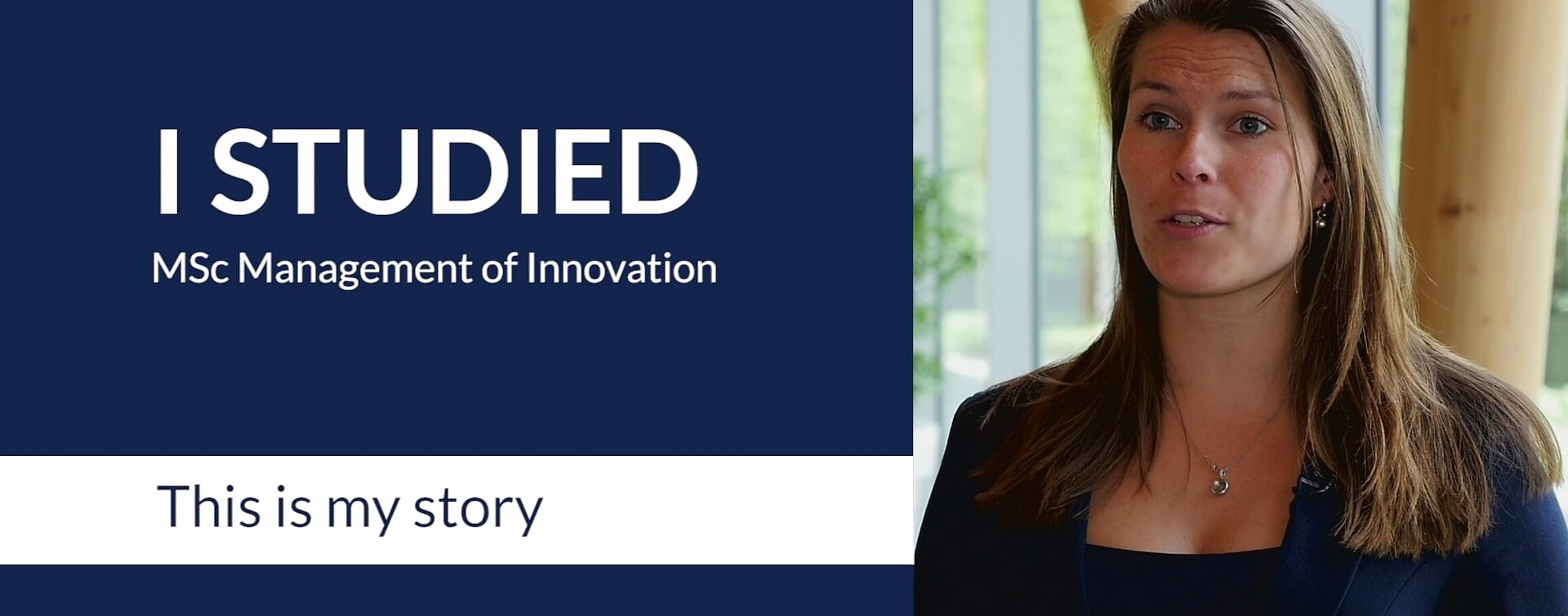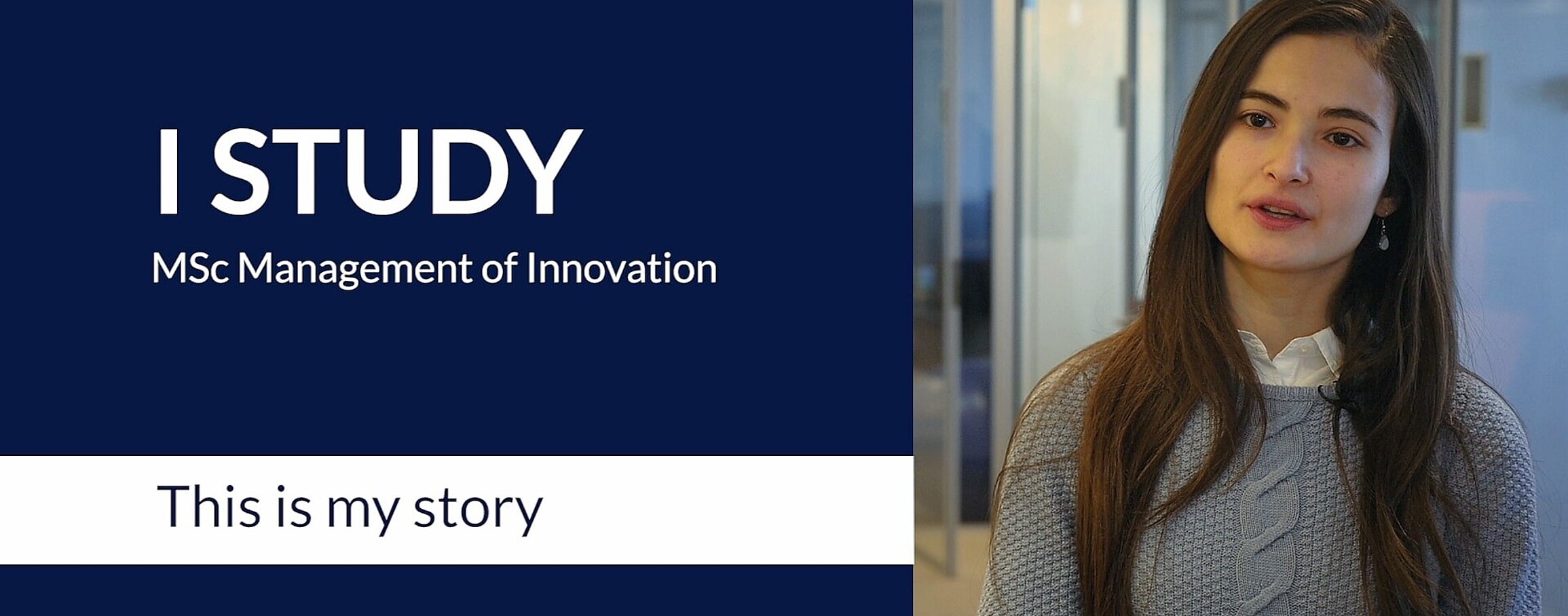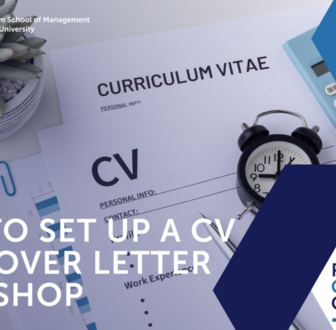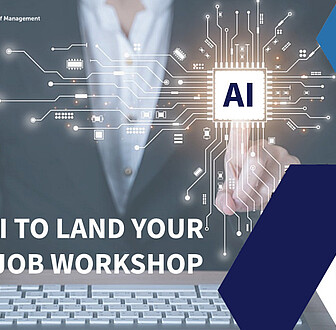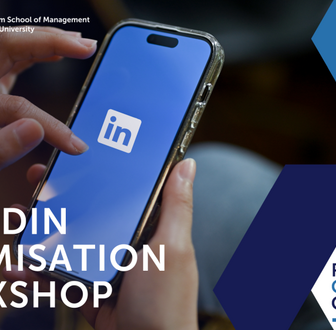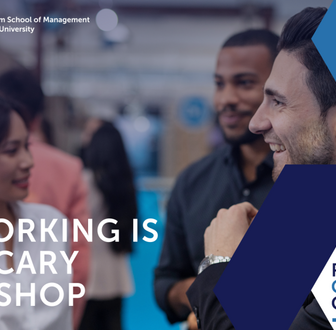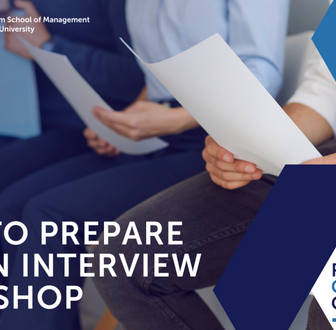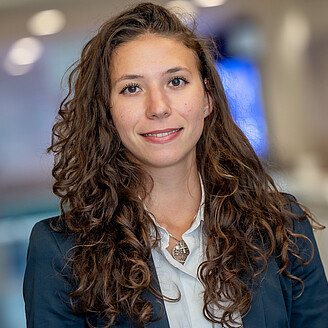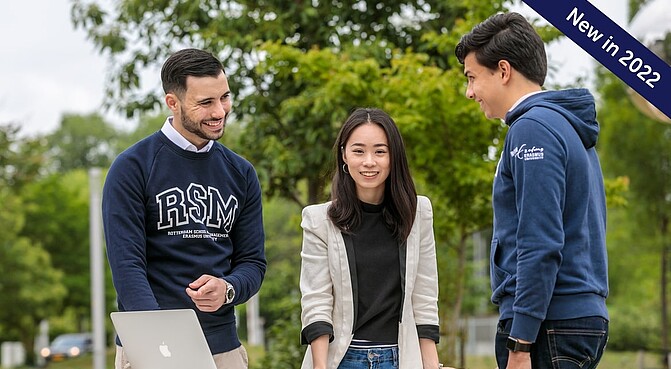Do you want to know more about the MSc Management of Innovation?
The video below will answer the most frequently asked questions about the programme.
Overview
The MSc in Management of Innovation programme is one academic year’s duration. Core courses are compulsory and will be offered during the autumn semester (22 EC). Master electives (18 EC) are offered during the spring semester, of which one elective can be chosen from another MSc programme. It is also possible to replace one elective with an internship or business project. During the year, students also work on a master thesis project (20 EC).
MSc programmes are often associated with a research group, guided by accomplished researchers making meaningful contributions in their respective fields. For a closer look at the exciting research initiatives by our academic faculty, we encourage you to explore the department of Technology and Operations Management under which the MSc in Management of Innovation falls.
Please note that core courses and electives are subject to change each academic year. While some electives are very popular and we can place most students in the elective(s) of their choice, there are no guaranteed places.
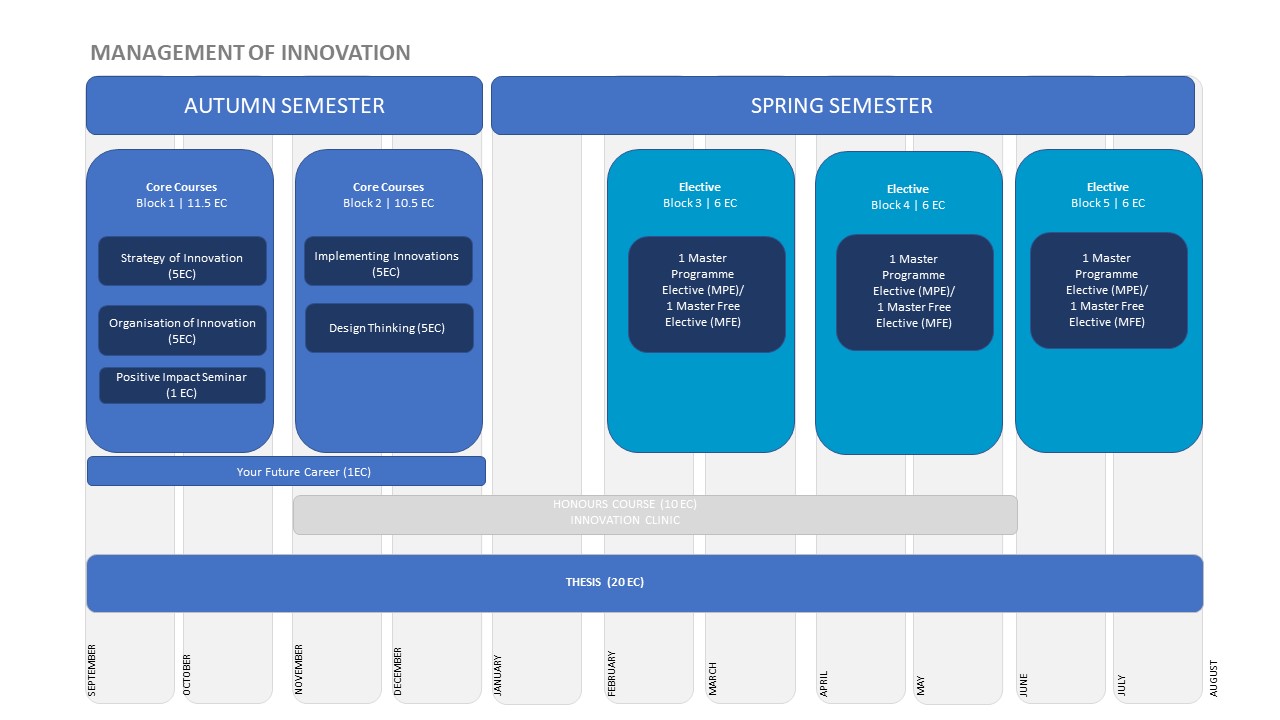
Our core courses provide you with the foundation of innovation management. The first two courses, Strategy of Innovation and Organisation of Innovation, offer a view of innovation management that focuses on understanding why organisations innovate and how they coordinate to create, deliver and capture value.
The following two courses, Design Thinking and Implementing Innovations, take you on a hands-on journey, in which you develop creative ideas and run projects to make your ideas a reality.
View all core courses below:
- Strategy of Innovation
- Organisation of Innovation
- Implementing Innovations
- Design Thinking
- Innovation Clinic
- Positive Impact Seminar
- Your Future Career
To complement you learning in the core courses, you can also choose from a wide range of electives*. Some of these elective courses enable you to develop skills in the areas of leadership and coaching. Others, focus on fascinating areas like web3 or transformation in healthcare.
Find a list of the elective courses below:
- High Performance Leadership
- Innovation and Standardisation Management
- Open Innovation
- Circular Economy
- Social Entrepreneurship
- Coaching for Innovation
- New Business Development
- MI Company-based research project
- Managing innovation in the Web3 era
- Digital Transformation in Healthcare
- Foresight and Future Thinking
*Please note that certain electives may be very popular. Although we can place most students in the elective(s) of their choice, there are no guaranteed places.
For a detailed description of all of the courses including electives, please view the course catalogue (for reference only, catalogue continually updated throughout the year).
Research is one of the most important components of our programme. During your MSc study, you not only learn about the latest research developments in innovation management, but you also conduct research and contribute to the development of our field.
While most of the work is carried out independently, you work closely with RSM faculty. They coach you as you develop your research project. You also receive the support of our instructors, who guide you in developing the operational aspects of the project.
Finally, you interact constantly with your peers in reflection and feedback sessions. Together, you share professional and academic experiences and best practices that help you all to move forward.
All the work you do leading up to and including the development of your project, is part of the research trajectory. Here are a few of the trajectory highlights:
- The research trajectory runs throughout the academic year, from October until June.
- Choose a research topic from a list of predefined options or follow your own research interest from a complementary discipline.
- Lectures for interactive feedback, gamification and in-class discussion deepen your knowledge of research methodologies.
- You’re guided by expert coaches with extensive experience in research and who have had papers published in top academic journals.
- Defence of the research work is open to the community and helps you to familiarise yourself and learn about other students’ contributions to science and the practice of innovation management.
Learn more
You can get a taste of working life – from large multinationals to fast-growing start-ups – by applying your new wealth of knowledge to a real company problem during your internship, which is optional in your programme. The RSM Career Centre will support you in finding a suitable position. Many students acquire their first job after graduation from the contacts they make during their internship.
Explore the world and broaden your study experiences by going on international study trips and exchanges at other top schools. RSM has an extensive partner school network of more than 100 business schools and universities worldwide, including top business schools such as ESADE in Barcelona and The Wharton School in the USA. An international exchange is an optional element after you’ve studied for your master for at least one year.
More and more firms are becoming aware that they need to innovate in order to survive. But innovation doesn’t come from automated systems. The creative process of generating ideas for new products, services and new business models is a human skill and the future for innovation leaders looks bright.
Our graduates find jobs in new business development, innovation project management and innovation consultancy. They work in product and service contexts across a broad range of industries. Their daily jobs involve supporting development teams when new products are being developed, and they devise and initiate new products and services themselves, becoming new business developers. They also act as consultants to small and medium-sized enterprises, advising on organising businesses for innovation.
According to the latest RSM Graduate Placement Survey, the majority of our recent graduates found a job within two months of starting their job search. All of them had a job within six months. Many found jobs in companies such as Unilever, Shell, Philips, ABN AMRO, DSM, Deloitte, Accenture, PwC, Cap Gemini, Rabobank, KPN, ING, and Randstad. Others work in small or medium-sized enterprises. Some of them have founded their own companies.
Curious to see what our alumni are doing?
Good to know
Non-EEA nationals who have earned a diploma from a higher education institute in the Netherlands can apply for a special residence permit called the orientation year after completing their studies. The 'Orientation Year for Graduates Seeking Employment' is a residence permit aimed at retaining foreign talent for the Dutch labour market. During this orientation year you are free to work without a work permit. Participants who find a job during this period can change their orientation year into a residence permit for Highly Skilled Migrants under more favourable terms.
For the most up-to-date information please visit the following website.
What's next after your studies? The RSM Career Centre is your guide for an impactful career. Its expertise in the labour market, personal branding and connections with employers will prepare you for your business career. Get ready for some exciting job fairs, workshops, speed interviews and coaching. You may land your first internship or job before you even graduate!
You’re a member of the RSM community from Day 1. After you graduate, you’ll also be a member of the RSM alumni network. The countless benefits include networking events worldwide with local chapters, lifelong learning and professional development, mentoring opportunities and access to the latest business knowledge and research. Your study at RSM is the first step towards being part of this inspiring community that you’ll be part of forever.
Talk to our current students!
The 2025-2026 tuition fee for the MSc programmes is approximately €24,600 for non-EEA students. The Dutch government contributes towards this cost for students who hold a nationality from a country belonging to the European Economic Area(EEA). These students therefore only pay the statutory fee €2,601 in 2025-2026.
For EEA nationals who have already completed a master in the Netherlands (and obtained the diploma) the tuition fee for a 2nd master is approximately €14,400.
Please note that all these tuition fee tariffs are subject to change.
There are other costs associated with the Master programmes, for more information please review the “Other expenses” section below thoroughly.
Scholarships
The number of scholarships is limited and mainly merit based. If a scholarship covers only the tuition fees, be aware that you need to finance your own living expenses (rent, food and insurances) for the duration of your studies. RSM does not offer scholarships for the pre-master programme. We do however offer a maximum of 2 scholarships per academic year to RSM pre-master students enrolling in an MSc programme.
Rotterdam School of Management, Erasmus University (RSM) offers multiple scholarships to prospective students from non-EEA countries who are not entitled to pay the EEA tuition fee, provided their grades are considered ‘excellent’. RSM also offers one scholarship, the Erasmus Trustfonds Scholarship, to students from EEA countries.
Besides scholarships awarded by RSM, there are also scholarships awarded by the Dutch government or other organisations that are available if you meet certain criteria such as nationality, age, etc We have listed some of them below but we encourage you to use resources such as Grantfinder or the Scholarship Portal to find additional scholarships.
- StuNed
- G&D Europe Scholarship
- NN Future Matters Scholarship
- Russia: The Global Education Programme
- LPDP
- OKP
Scholarship tips
- Contact the Ministry for Higher Education in your home country to see whether there are scholarship options.
- We have virtual information session covering all you need to know about scholarships and financial aid. Watch it here.
For students from the Netherlands or the EU/EEA, it may be possible to apply for limited funding towards payment of your tuition fees. Find out whether you meet the nationality and age requirements and read more information about the application process here.
IM/CEMS is a program that - if you are still eligible - entitles you to a maximum of 1 year's use of your DUO entitlements. Students who have received a basic grant and possibly a supplementary grant from DUO in the first year of IM/CEMS and meet the following additional conditions may be eligible for an additional half year (6 months) of financial support, which is equal to the grant received in the last month during the program. Please contact the student counselors for more information.
Conditions Financial Support Fund
Students eligible for financial support due to extended master programmes are those who:
a) are enrolled full-time in a public funded Erasmus University Rotterdam degree programme, which is extended on the base of article 7.4, paragraph 8 of the Dutch Higher Education and Research Act;
b) are enrolled as first enrollment (hoofdinschrijving) in the study programme as referred to under a, for which the student pays statutory tuition fee;
c) for this program, is or was entitled to study finance (prestatiebeurs hoger onderwijs) as referred to in the Wet Studiefinanciering 2000, and during the period corresponding to the study load that exceeds 60 ECs, and is no longer eligible for student finance in the form of an additional grant.
Other expenses
After having filled in all of the necessary application information on the Online Application Form (OLAF) and uploaded the required documents, applicants with a degree obtained outside the Netherlands will be asked to pay a non-refundable €100 handling fee. This fee can be paid online via the Erasmus Payment System which uses either iDEAL (for those with a Dutch bank account) or PayPal (which can be linked to any bank account or credit card worldwide). It is important that applicants complete the payment process as indicated, otherwise the system cannot register the payment.
The additional expenses in addition to tuition and general living costs (see below) vary per programme and may include:
- Study materials such as books, readers and business cases
- Costs involved in kick-off meetings
- Costs related to travel, international excursions and compulsory exchange semesters or internships abroad
Approximately € 300 - 500 (per year), these costs differ per programme.
For a reasonable standard of living in the Netherlands, you should have an income of between €1,235-€1,735 per month depending on your lifestyle. Further information about the costs of living in the Netherlands and related subjects can be found on this website. Below is an example of monthly expenditures:
| Furnished accommodation, including gas and electricity | € 500-1,000 |
| Medical insurance | € 50 |
| Telephone/internet | € 15-40 |
| Food | € 300 |
| Books, recreation, clothing | € 300 |
| Public Transportation | € 50 |
| Total | € average 1235 - 1735 |
| Other potential expenses: | |
| Buying or renting a bike | € 100 - 250 (per year) |
| In private residence (not student housing) yearly municipal and water taxes | € 100 - 300 (per year) |
| Study trip or other study related travel | € 300 - 500 (per year) |
Please ensure, prior to your arrival at RSM, that you have or will have sufficient funding available to finance your stay at RSM. Finding a part-time job, may be an option, but can not be guaranteed. You should therefore not rely on finding other ways to supplement your income during your studies. For additional information on obtaining a part-time job, visit the website of the Nuffic.
For EEA students there are no formal restrictions in finding work in the Netherlands, but students with a lack of Dutch language skills will find it difficult to secure employment. Non-EEA students are subject to labour regulations, which makes the likelihood of obtaining a work permit very small. We therefore ask students not to rely on this possibility. We do not encourage students to combine studies with the heavy workload from a part-time job.
This programme does not have a cap and you can submit an application up until 15 May for the September 2025 intake.
Find out everything you need to know about entry visas & residence permits for non-EU or EEA students at RSM.
Finding housing in Rotterdam can be tricky. To help you in your search for housing, we have compiled some helpful resources
